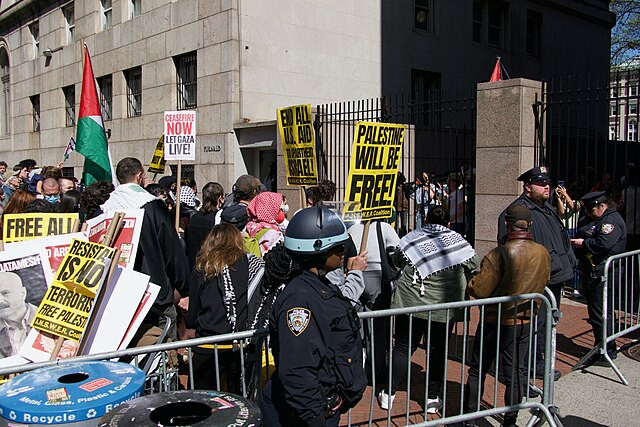A wave of pro-Palestinian protests has swept across college campuses in the United States, resulting in more than 500 arrests as students clash with police and demand an end to the conflict between Israel and Hamas. The demonstrations, which began at Columbia University last week, have spread to universities such as the University of Southern California (USC), the University of Texas at Austin (UT Austin), Emerson College, Princeton University, and Emory University.
At the heart of the protests are demands for universities to divest from companies linked to Israel or businesses profiting from the war in Gaza. Khymani James, a student at Columbia University, stated during a news briefing, "We are not going anywhere until our demands are met." However, universities have largely refused to comply with these demands, and experts question the effectiveness of divestment campaigns.
In addition to divestment, protesters are calling for universities to disclose their investments, sever academic ties with Israeli universities, and support a ceasefire in Gaza. Some demands are specific to individual campuses, such as the protection of free speech, amnesty for arrested protesters, and an end to policing on campus.
The protests have led to significant disruptions, with USC canceling its commencement ceremony and UT Austin faculty members calling for the resignation of the university's president, Jay Hartzell, after he praised the school and law enforcement for exercising restraint against protesters.
While the demands for divestment are at the forefront of the protests, experts debate the feasibility and impact of such actions. Charlie Eaton, assistant professor of sociology at the University of California, Merced, believes that universities can make the choice to divest from Israel-linked investments based on "principles of equity and justice." However, Mark Yudof, chairman of the Academic Engagement Network, which opposes campus antisemitism, argues that it is not a simple solution to implement and that no university has divested from Israel despite years of pressure.
Critics of the divestment movement, such as Jonathan Macey, a professor at Yale Law School, argue that supporting divestment would send a signal that universities either acquiesce in or support the destruction of Israel and its citizens, which could be viewed as "hostile and threatening" to many students, faculty, and staff.
The Anti-Defamation League (ADL) views the push for divestment as related to the Boycott, Divestment, and Sanctions (BDS) movement, which they consider antisemitic. Lauren Post, an analyst at the ADL, stated, "The goal - ultimately dismantling the state of Israel, is antisemitic." However, student protesters have not directly affiliated themselves with the BDS movement.
There are also questions about the effectiveness of divestment campaigns, given that university endowments own only approximately 0.1% of public companies, according to research by Cary Krosinsky, a lecturer at Yale who has advised university endowments. "0.1% is not going to move the needle very much. Someone else will buy the stock and life will go on," he said.
Despite the challenges and criticism, student protesters remain committed to their cause. Basil Rodriguez, a graduate student at Columbia University who is Palestinian, shared that her family members have been "murdered and executed" and displaced. She emphasized the importance of financial transparency, stating, "At the same time, this is only the tip of the iceberg. We demand full financial transparency."






